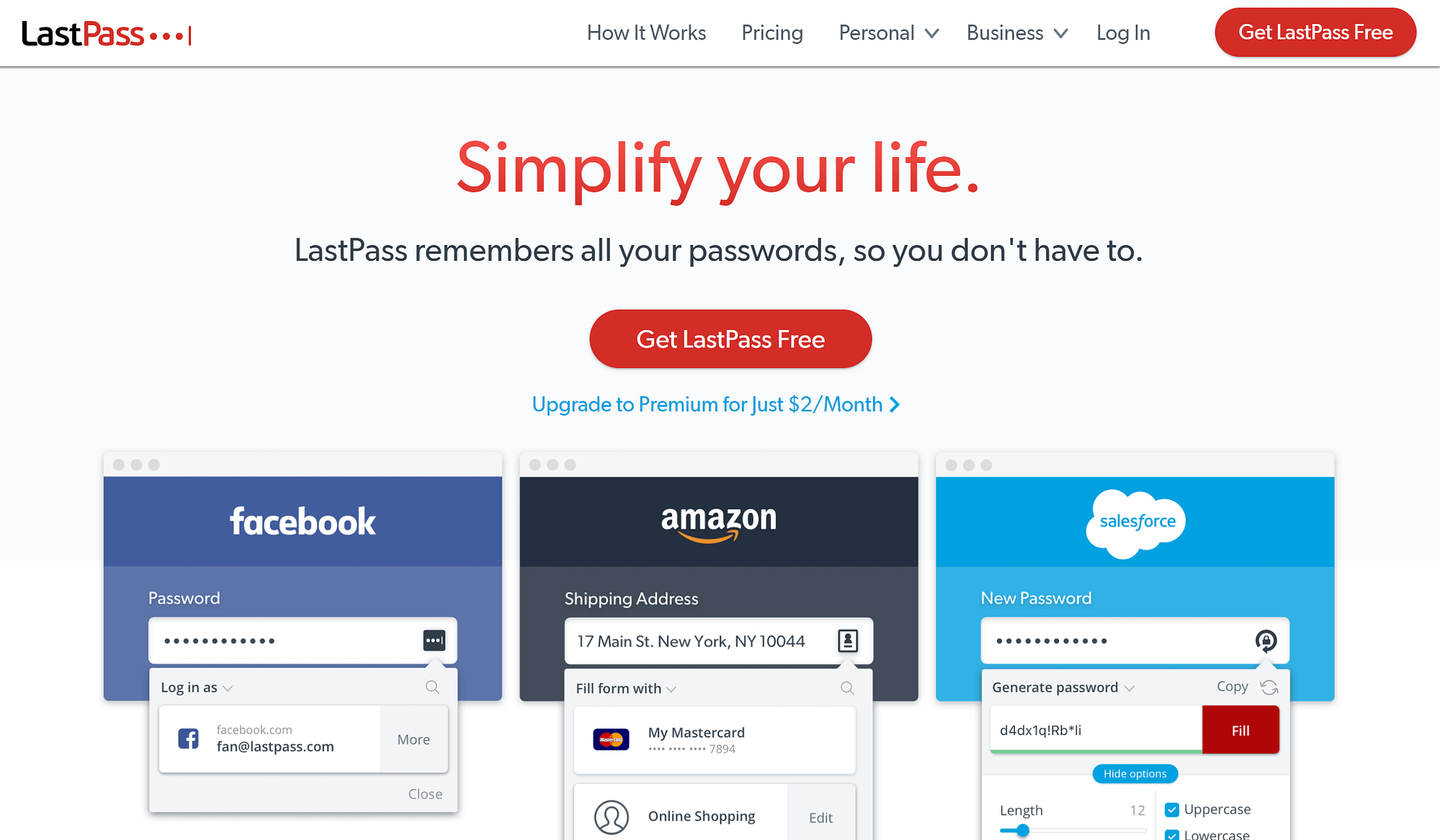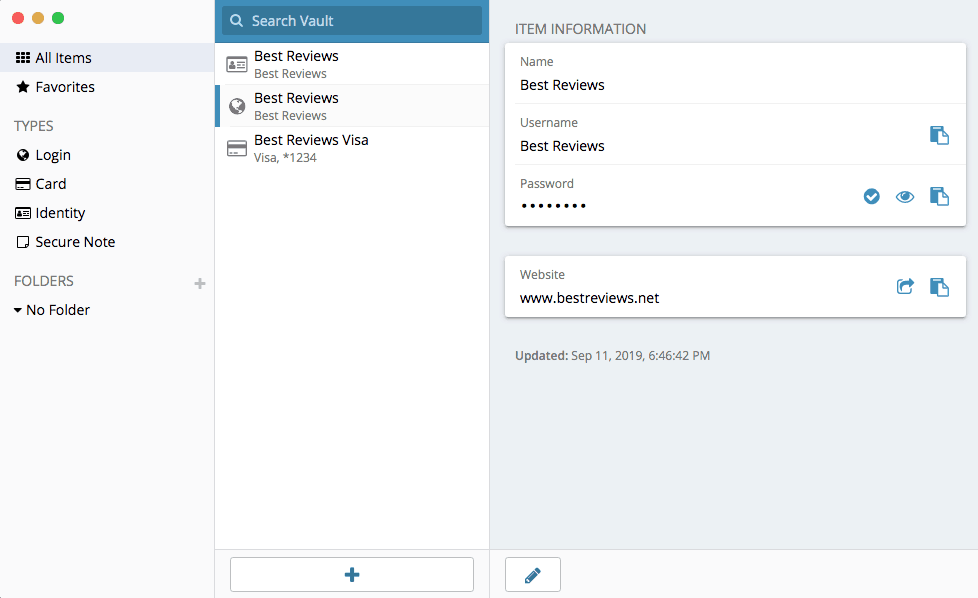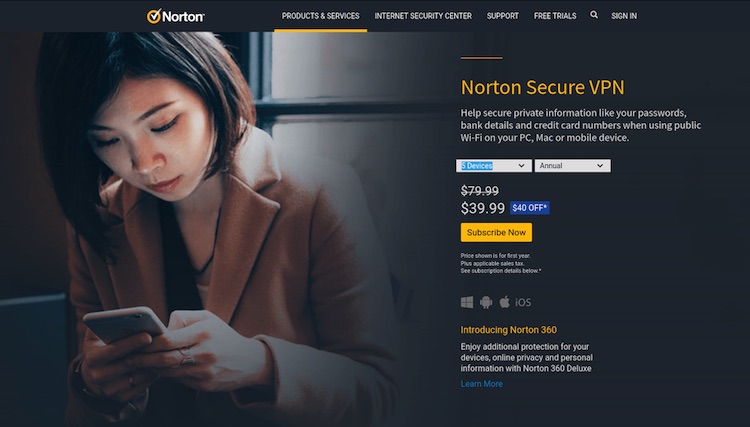Putting Dashlane and Bitwarden side-by-side is, without a doubt, a clash of titans. Each one offers a comprehensive password manager and, although some aspects differ, both are reliable pieces of software that will secure more than just your account credentials. There's the option to use both Dashlane and Bitwarden for free forever, but to really get the most out of these password managers a premium account is necessary. Thankfully, you can test all the added features by taking advantage of their 30-day risk-free trials.
| Main Features | Dashlane | Bitwarden |
| Logo | ||
| Rating | ||
| Reviews | ||
| Visit | ||
| Free Versions | Free Versions | Free Versions |
| Coupons | Coupons | Coupons |
| Form Filling | ||
| Cloud Syncing | ||
| Local Storage | ||
| Password Generator | ||
| Password Sharing | ||
| Import Browser Data | ||
| Import Competitor Data | ||
| Export Data |
- What is the Best Password Manager for 2020? Welcome back to another review! This time we're taking a look at what is the Best Password Manager, in 2020.
- When comparing Dashlane vs Bitwarden, the Slant community recommends Bitwarden for most people. In the question “What is the best cross-platform password manager?” Bitwarden is ranked 2nd while Dashlane is ranked 9th. The most important reason people chose Bitwarden is.
Dashlane is more than a password manager: It’s the fastest and easiest way to use the internet. Our browser extension integrates seamlessly into your online routines by following along with you to save and fill in your passwords and personal information as you go. The security key is built on open source hardware and firmware, making it a universal factor authentication device instead of a two-factor authentication device. The Solo V2 is small key that can.
| Mobile Apps | Dashlane | Bitwarden |
| Browser App | ||
| Windows App | ||
| macOS App | ||
| iOS App | ||
| Android App | ||
| watchOS App | ||
| Linux App | ||
| Kindle App |

| Browser Extensions | Dashlane | Bitwarden |
| Google Chrome | ||
| Firefox | ||
| Safari | ||
| Internet Explorer | ||
| Microsoft Edge | ||
| Opera |
| Data Types | Dashlane | Bitwarden |
| Passwords | ||
| Payment Information | ||
| Secure Notes | ||
| Identities | ||
| Receipts | ||
| Email Accounts | ||
| Wi-Fi Networks | ||
| Software Licenses | ||
| Bookmarks |
| Security and Privacy Features | Dashlane | Bitwarden |
| Fingerprint Login | ||
| Mobile App Pin Unlock | ||
| Two-Factor Authentication | ||
| Encryption | AES-256 | AES-256 |
| Features of the Free Version | Dashlane | Bitwarden |
| Password Sharing | ||
| Cross-Platform | ||
| # Credentials | 50 | Unlimited |
| Pricing Plans | Dashlane | Bitwarden |
| Lifetime License | ||
| Subscription | ||
| Price | $3.33/mo ($39.99/yr) | $0.83/mo ($10/yr) |
| Free Trial | No | 30 days |
| Free Version | ||
| Money-Back Guarantee | 30 days | 30 days |
| Available Payment Methods | Dashlane | Bitwarden |
| Visa | ||
| PayPal | ||
| MasterCard | ||
| American Express | ||
| Wire Transfer | ||
| Discover | ||
| Bitcoin |
| Customer Service | Dashlane | Bitwarden |
| 24/7 | ||
| Live Chat | ||
| On Call | ||
| Community | ||
Dashlane
Dashlane is much more than just a password manager – it's a safe place for any type of personal information you may want to save. Proof of that is the variety of data entries that you can store in Dashlane's vault. Moreover, Dashlane's paid version scans the dark web to ensure your details haven’t been leaked, alerts you of any data breaches, and audits passwords to warn you about weak and/or duplicated keys.
Things don’t end there though. Security-wise, Dashlane is a technological fortress. In addition to protecting all information locally with AES-256 military-grade encryption, Dashlane also offers a built-in VPN that ensures you can safely use the password manager when connected to insecure public Wi-Fi. In other words, nobody will be able to get their hands on your personal data.
Dashlane Or Bitwarden
Use our special promotional code below and if you haven’t used RoboForm before you can enjoy RoboForm Everywhere or Family for as low as $1.16 per month, saving 30% on the subscription fees.
The main issue with Dashlane is its price. While there's a free plan that you can take advantage of, it limits your number of stored passwords to 50. To actually use Dashlane without any worries, you'll have to upgrade to the premium account which costs at least $4.99 per month with yearly installments.
Dashlane Password Information
Bitwarden
Bitwarden is an open source password manager that not only offers many of the features found in modern password managers but still provides the flexibility tech-savvy people love. What's more, Bitwarden's free plan is one of the most complete on the market. It lets you store an unlimited number of entries, allows for device syncing, and offers the option to self-host your vault without having to pay a cent.
Security-wise, Bitwarden encrypts your data locally using AES-256 encryption, which means that the company only ever stores encrypted data in their servers. However, if you want to keep your credentials closer to home, you can self-host your own vault via Docker.
Bitwarden Password Generator
The paid Bitwarden plan adds 1GB of secure file storage, two-step login, vault health reports, and TOTP authentication to the package – all for the ridiculously low price of $0.83 per month with annual payments. There's also a family package which supports up to five users, and gives you the ability to share entries between each other for just $1 per user per month.
Conclusion

Regardless of the password manager you choose – Dashlane or Bitwarden – you'll be in good hands. Pricewise, Bitwarden is more attractive: not only does its free plan offer enough features for you to use it forever without the need to upgrade, but even if you decide to go premium you won't be spending much. On the other hand, Dashlane may be more expensive but it comes with many more features. It supports a wider variety of data types, and the built-in VPN ensures that you're safe even when accessing your password vault over insecure Wi-Fi. In short, if you're only looking for a reliable password manager, Bitwarden is enough. However, if you're looking for some neat extra features, Dashlane is the password manager you want. We advise you to take advantage of both companies’ 30-day risk-free trials to see for yourself which one floats your boat the most.
Best Password Managers of 2021
| Rank | Provider | Info | Visit |
| Editor's Choice 2021 |
| ||
| |||
|
Get the Best Deals on Password Managers
Subscribe to our monthly newsletter to get the best deals, free trials and discounts on password managers.

14 Dec 2020
It’s 2020. If you aren’t using a password manager yet, drop everything you’re doing and switch to one.
Using password managers is a very good idea. Up until last year, I was using Chrome’s password manager, and it worked well, for the most part. However, I wanted something more dedicated, since I had started to see obvious issues with it (no concept of “master” password, no special characters in password generators, no cross platform support, etc.). I searched around for password managers, and most reviews recommended options like Dashlane, 1password, Lastpass, etc. Figuring that there wouldn’t be much difference between these options, I decided to give Dashlane a try. After all, everyone did say “you can’t go wrong with any of these”. Boy, was I wrong.
The more I used Dashlane, the more puzzled I became at some of the design decisions the company chose to make. I ran into some bugs that are not only deal breakers, but are outright security issues. Since I had paid for a year of Dashlane’s premium subscription, I decided to give it a chance anyway. After having none of those issues go away after 11 months, I decided to just give up and switch to Bitwarden yesterday. In a couple of hours, all my issues magically went away. Here are my gripes with Dashlane:
Dashlane’s Autofill feature
One of the things that annoyed me the most with Dashlane was the “auto login” feature. If you’re on a website’s login page and Dashlane has only one login for that, it’ll simply fill the credentials in, and then click the submit buttom for you. The first time it happened to me I was so confused I had no idea what happened. This is just straight up no-no in my books. Software should never do things for you unless you specifically configure it to do that. It should merely suggest and serve helpful suggestions, never do actions on your behalf. Not only that, but:
- You can’t click the “Remember me” checkbox or interact with the page in any way.
- Some sites have a login page on their home screen, and this feature just makes you jump directly without even asking if you want to log in in the first place.
- There’s no global switch to turn off this feature. You literally have to open each password item in the Dashlane app and turn it off. Needless to say, for hundreds of passwords, this feasible at all.
Broken Popups
Dashlane’s password fill in popup would just randomly not appear sometimes, both in the extension, and on my Android device, requiring me to open the app and manually copy the password from there. Besides being annoying, this is a very serious security concern, since the only time the password fill in pop up should not appear is when you’re on a phishing site.

I even got phished because of this once. Someone messaged me an invite to their Steam account, but the URL was staemcommunity.us (Notice the ‘a’ and ‘e’ flipped. Also, Steam doesn’t have a .us domain, but it looked official enough for me in that moment). The page was a 1:1 replica of the steam page, and Dashlane refused to show the password popup. Rolling my eyes, I opened the dashlane app, copied my username and password and even submitted the form. Thankfully, the minute I submitted it I realized something was wrong (the page told me that my username/password combo was incorrect, which it couldn’t possibly be), and I figured out I was phished, and changed my credentials quickly. This would have never happened had Dashlane’s popup been more reliable for me.
No Desktop App support for Linux
I solely use Pop!OS for everything, including gaming. Imagine my disppointment when I found that Dashlane’s desktop app only supports Windows and Mac. Without the app, you can’t use Dashlane’s VPN (why would you pay for premium then?). You also can’t use features like password export.
To shift to Bitwarden, I literally had to download Windows 10, create a virtual machine, install the app, then use the export feature. Why doesn’t the web app have such a basic utility feature?
Bitwarden Vs Dashlane
No ability to lock extension on sleep
Bitwarden Vs Dashlane Reddit
Whenever I lock/put my device to sleep, I want to extension to lock itself too, otherwise there really isn’t any point to having a master password. Dashlane has no such feature. Anyone who can someone get in my machine also suddenly has access to all my passwords. Bitwarden, a free service, has that feature.
Broken Password Export
Thankfully, Dashlane offers to export all your stored information in a JSON so you can shift to some other (read: better) password manager. However, after migrating to Bitwarden, I noticed that it wasn’t working well with subdomains. My first instinct was to blame Bitwarden, but upon inspecting the JSON export of my information, I found out that Dashlane had grouped together passwords for all subdomains into the domain. For example, the passwords for abc.example.com and pqr.example.com were stored in the JSON as 2 different passwords for example.com. Morever, none of my “Secure Notes” had made it in the export. I’m going to have to manually spend some time to clean up this mess.
Conclusion
Just use Bitwarden. It’s free, and the premium plan is 1/5th the price of Dashlane, and it is much more usable and has more features than Dashlane.
Bitwarden Vs Dashlane
This page uses Disqus for comments which uses Javascript. Please enable if you wish to participate!